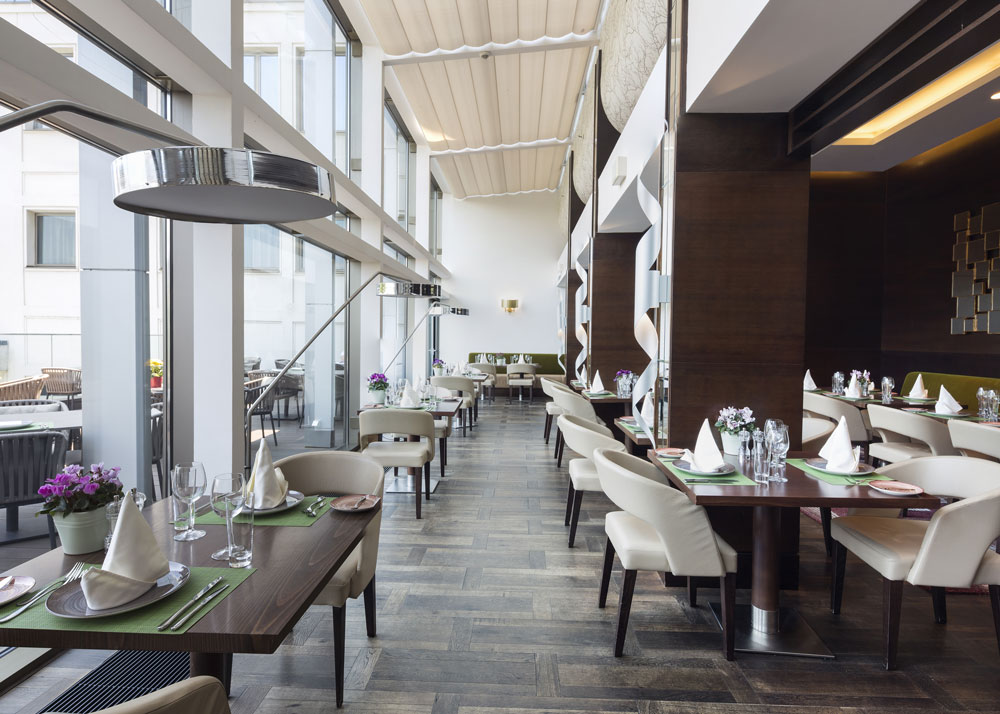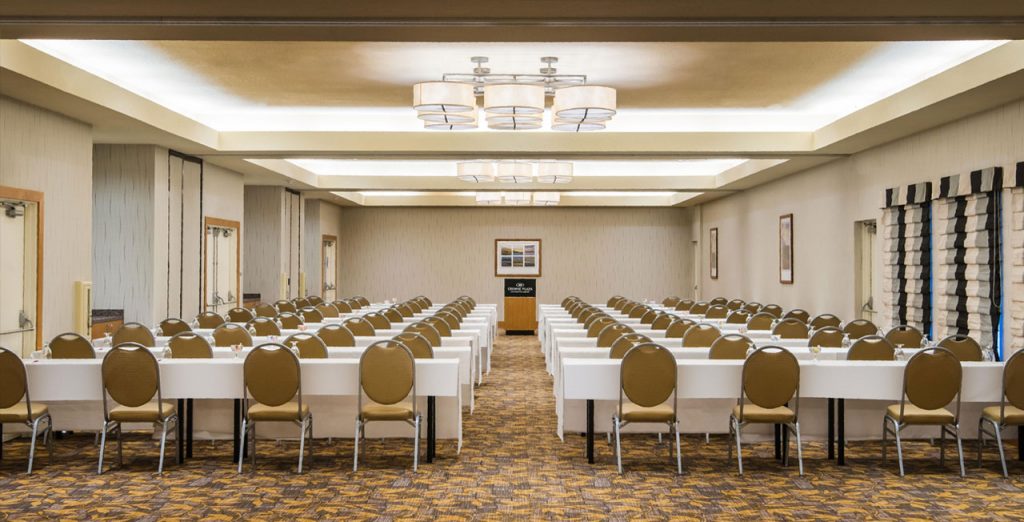What Is A Hospitality Venue
Hospitality venues are the places we turn to when looking for a place to relax, refuel and enjoy ourselves. From hotels and restaurants to outdoor venues such as vineyards, these locations provide us with the opportunity to indulge in new experiences without ever leaving our hometown. But what exactly is hospitality? And how do these venues ensure that their guests have an enjoyable experience every time? In this article, we will explore the ins and outs of hospitality venues — from safety measures to staffing requirements and everything in between — so you can understand just how much goes into providing exceptional customer service. Get ready to learn what it takes to make sure your customers leave happy!
Types of hospitality venues
Hospitality venues come in many shapes and sizes, from traditional hotels and restaurants to outdoor spaces and more. Each venue offers a unique experience that can be tailored to different customer needs. From luxury resorts to gangnamhardroom.com, cozy bed-and-breakfasts, there are plenty of options for travelers looking for a place to stay. Restaurants provide an opportunity for customers to indulge in a variety of delicious cuisines while enjoying conversations with friends or family. Outdoor hospitality venues offer an escape from the hustle and bustle of daily life, allowing customers to enjoy the beauty of their surroundings while taking part in activities like golfing, hiking, or fishing. Special events such as weddings or corporate retreats also require specialized hospitality services—from catering and decorating to arranging entertainment and transportation. Finally, businesses need access to reliable hospitality services daily, from providing meals for employees at lunchtime to hosting important business meetings. By understanding the various types of hospitality venues available, it is easier for customers to find the perfect option for their needs.
No matter what your hospitality needs may be, there is a perfect venue out there for you to enjoy and make lasting memories. And for those looking for paying guests, stay tuned for the next section where we’ll explore the world of restaurants and hotels!
Establishments providing paid accommodation such as restaurants and hotels.
Restaurants and hotels are the cornerstones of the hospitality industry, providing a space for people to relax, enjoy time with friends and family, or conduct business. Whether staying for a night or dining out, these venues offer customers an escape from their everyday lives. Restaurants provide a variety of cuisines and atmospheres to cater to all tastes. Hotels offer comfortable rooms and suites with amenities such as pools and spas to make guests feel at home. Both types of hospitality venues involve daily operations that include stocking supplies, training employees, attending to customer needs, and more. By offering high-quality food service, beverage management, business planning skills, and commitment to hospitality excellence, restaurants, and hotels can ensure success in their respective businesses. As the leisure industry grows alongside an ever-changing world of technology and services, these hospitality properties must remain current with trends while also maintaining basic food production standards that keep guests coming back again and again. Whether you are looking for an all-inclusive stay or just looking for a night out on the town, there is sure to be a perfect restaurant or hotel venue that suits your needs!

Exposure to Hospitality Venues
Hospitality venues offer guests not only a place to relax and enjoy themselves but also valuable experiences that they can take with them. Exposure in hospitality venues is an important part of the customer experience. From tasting new flavors and cuisines to trying out different styles of furniture, exposure in hospitality venues provides customers with an opportunity to explore something new. It is also a great way for businesses to showcase their services and offerings, as well as promote their brand. Additionally, exposure in hospitality venues can help attract more customers and build relationships between existing ones. As the industry evolves, it is increasingly important for hospitality businesses to provide their customers with a unique and memorable experience that will leave them wanting more. With the right exposure in hospitality venues, companies can set themselves apart from their competitors and ensure a successful future in the hospitality industry.
The hospitality industry is an ever-evolving space and providing customers with unique and exciting experiences through exposure in hospitality venues is key to staying ahead of the competition. With the right approach, businesses can ensure that their guests leave with lasting memories and a greater appreciation for their services. Now, let’s take a look at how safety measures play into this equation.
Safety Measures
Safety is an essential part of hospitality venues, and providing customers with a safe and secure environment should be a top priority for any business. To ensure that customers feel safe and comfortable in their surroundings, hospitality venues must take the necessary steps to minimize risks. This includes making sure that the venue follows all applicable safety regulations, implementing thorough training programs for staff members, and regularly inspecting the premises. Additionally, businesses should invest in quality fire safety equipment such as alarms, sprinklers, and smoke detectors. By taking proactive measures to ensure safety in their facilities, hospitality venues can provide guests with peace of mind while they enjoy their visit. Furthermore, this commitment to safety can also help build customer trust and loyalty over time.
Staffing Requirements
Staffing is an important factor in the success of hospitality venues. By hiring the right people and allocating resources efficiently, hospitality venues can ensure that their operations run smoothly and that customers always have a positive experience. Hospitality venues need to invest in recruiting and training staff members who are knowledgeable, reliable, and personable. Additionally, hiring employees with diverse skill sets can help businesses provide an even higher level of service. When hiring staff members, it is also important to consider their traits as well as technical abilities; potential employees should be friendly and enthusiastic about providing customers with quality service. Finally, hospitality venues need to develop a commitment to fair pay and benefits to attract and retain the best talent available.
Business Days and Special Events
Business days and special events are essential for the success of any hospitality venue. On business days, venues must ensure that they have the necessary staff to service customers in a timely fashion while providing exceptional customer service. This includes preparing food, taking orders, and carrying out any cleaning or maintenance tasks that may be required during the day’s operations. Special events require additional preparation to ensure that each event is a success. Venues must plan menus and seating arrangements, as well as hire additional staff if needed. They should also consider entertainment options such as live music or DJs, depending on the type of event being held. Event planning requires careful attention to detail and an understanding of what customers will enjoy at their specific event. By investing time and energy into planning both business days and special events, hospitality venues can provide customers with memorable experiences and build lasting relationships with them.
Leisure Industry and Daily Operations
The leisure industry is an essential component of the hospitality sector and requires daily operations to be successful. From setting up food service, preparing delicious meals, and stocking alcoholic beverages and other drinks, to providing entertainment options for guests, there are many facets of a hospitality venue that must be managed. A successful hospitality business must have a commitment to creating enjoyable experiences for customers, as well as a keen business sense that allows them to anticipate customer needs and plan accordingly. With careful planning and attention to detail, outdoor hospitality venues can provide excellent experiences while ensuring that their daily operations run smoothly. All-inclusive food production tasks such as basic food preparation and beverage management also play an important role in the success of a hospitality business. By investing time into understanding all categories of hospitality jobs and what customers need from each experience, hospitality venues can ensure that their projects are successful.
The hospitality industry is an ever-evolving landscape, with new demands and expectations from customers. With the right planning, dedication, and commitment to excellence, and hospitality venue can create memorable experiences for its guests. Now, let’s take a closer look at the role of food service in the hospitality industry – it’s one of the most important elements that make a successful venue!
The Role of Food Service
Foodservice is an integral part of the hospitality industry. It not only provides nourishment to guests but also creates lasting memories and experiences that customers will remember long after they’ve left the venue. To make sure food service runs smoothly, hospitality venues need to invest in staff training, quality ingredients, and the right equipment.
From developing menus to ordering supplies, food service requires a great deal of attention to detail. A knowledgeable team should be able to understand customer needs and preferences, as well as how to properly prepare dishes according to their tastes. As such, hospitality venues must commit to excellence when it comes to their food service operations.
The beverage category also plays an important role in the success of any hospitality venue. Beverage operations require understanding customer desires and preferences for both alcoholic and non-alcoholic beverages to create custom drinks that visitors can enjoy with their meals. Furthermore, venues must ensure their bartenders are up-to-date on all laws governing alcohol consumption and sales to properly serve guests without risking legal problems or liability issues.
By investing time into understanding all categories of hospitality jobs and what customers need from each experience, hospitality venues can ensure that their projects are successful. With careful planning and attention to detail, outdoor hospitality venues can provide excellent experiences while ensuring that their daily operations run smoothly – making sure all guests leave happy!
Alcoholic Beverages and Beverage Management
Alcoholic beverages are an integral part of any hospitality venue, providing guests with a unique, memorable experience. Beverage management is essential for ensuring that these drinks are served most safely and enjoyably possible.
At its core, beverage management requires a detailed understanding of the laws governing alcohol consumption and sales. This includes making sure that staff members are properly trained on responsible service practices and maintaining compliance with all applicable regulations. Additionally, venues must pay close attention to the types of alcoholic beverages being served, as well as how they can be served safely and responsibly.
In addition to proper legal compliance, beverage management also applies to creating an enjoyable experience for guests through thoughtful drink selection and presentation. Venues should strive to offer a variety of options that cater to their customer base while also paying special attention to the presentation (e.g., garnishes) which can add value to each drink order.
Finally, beverage management provides a great opportunity for venues to increase their profits through up-selling techniques such as offering specialty cocktails or higher-end spirits at an additional cost. By carefully managing alcoholic beverages, hospitality venues can provide customers with an unforgettable experience while also boosting their bottom line!
Business Planning and Sense of Commitment to Hospitality
Business planning and a sense of commitment to hospitality are key elements for success in the hospitality industry. A successful business plan is necessary for any venue that wants to make an impact in the industry and with its customers, as it provides a clear road map for achieving goals. It also helps to identify potential risks and opportunities, allowing venues to adjust their strategies accordingly.
A commitment to hospitality is just as important as having an effective business plan. This involves creating a welcoming atmosphere where guests feel at ease, providing outstanding customer service, and going above and beyond expectations when catering to customers’ needs. Additionally, businesses should strive to create innovative experiences that help differentiate them from other venues in the market.
Businesses must also ensure that their staff members are properly trained on all aspects of hospitality operations so they can consistently deliver top-notch service each time a customer visits the venue. Finally, establishing strong relationships with suppliers, partners, and investors will help ensure that your venture stays successful over the long term while simultaneously building trust with your customers.

Outdoor Hospitality Venues and Categories of Jobs
Outdoor hospitality venues are gaining more attention in the hospitality sector with each passing year. The boom in outdoor activity has driven increased demand for hotels, restaurants, and other businesses that can provide customers with comfortable and enjoyable experiences outdoors.
The categories of jobs associated with outdoor hospitality venues are varied and diverse. From basic food production to alcoholic beverages and special events, there is something for everyone in the world of outdoor hospitality. There are also operational roles such as general managers, supervisors, and staff members who oversee daily operations. Additionally, there are also those involved in project management who are responsible for planning and implementing outdoor hospitality projects.
It takes a unique set of skills to excel in a position related to outdoor hospitality venues. A combination of business sense, technical know-how, attention to detail, customer service excellence, and creativity will ensure success in this field. With the right set of qualifications and experience, individuals can make their mark in the leisure industry by taking up a career in the exciting world of outdoor hospitality venues!
Outdoor hospitality venues offer a unique and exciting opportunity to make your mark in the leisure industry. With the right qualifications and experience, you can open up a world of possibilities in the world of outdoor hospitality. So why not take advantage of this opportunity today and start your journey into the wild world of outdoor hospitality? And if you think that’s all there is to it, wait until you read about Basic Food Production and All-Inclusive Meals Maintenance and Cleanliness Requirements for Outdoor Venues
Basic Food Production and All-Inclusive Meals Maintenance and Cleanliness Requirements for Outdoor Venues
Outdoor hospitality venues offer a unique challenge to those involved in the food industry. Basic food production requires an understanding of ingredients and the ability to create comprehensive menus for outdoor settings. All-inclusive meals must be developed with an eye towards health and safety regulations, as well as a commitment to providing quality dishes that will satisfy guests. Furthermore, maintenance and cleanliness requirements must be met to ensure a safe and pleasant environment for guests.
It takes an experienced chef or manager with knowledge of food safety, nutrition, and presentation to provide exceptional dishes at outdoor hospitality venues. The ability to create menus that are both delicious and nutritious is essential for success in this area. Additionally, staff members at these venues should be knowledgeable about proper sanitation practices and be able to maintain cleanliness standards throughout their work day.
Overall, outdoor hospitality venues present a myriad of opportunities for those interested in making their mark in the food industry. With dedication and hard work, individuals can develop skills that will lead them down successful paths within the hospitality sector.
Conclusion
The hospitality industry is a booming business sector that offers an array of opportunities for those looking to make their mark in the food industry. With dedication and hard work, individuals can develop the skills they need to succeed in this field. Whether it is creating all-inclusive meals or maintaining cleanliness standards, there are many aspects to consider when running a successful hospitality venue. It takes commitment and business sense to ensure that guests have a pleasant experience and return to patronize again in the future. With careful planning, hospitality venues can provide a unique and enjoyable experience that will keep customers coming back time and time again.
